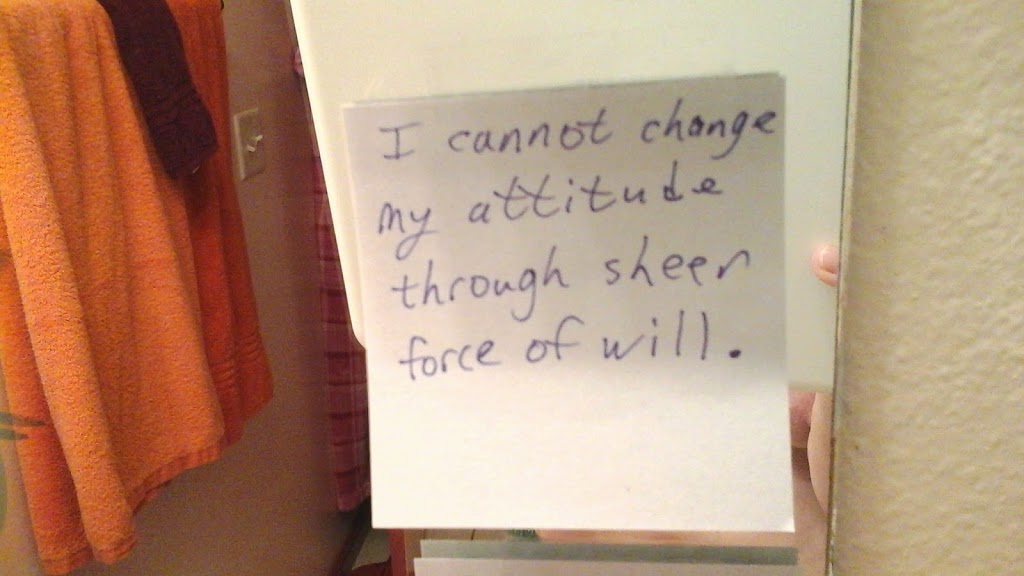Sometimes I get so frustrated with me because I keep forgetting that a key symptom of alcoholism is acting like an asshole. It seems I get complacent and cozy, and then when my alcoholic says or does something that is just unbelievable, I forget just what a cunning, baffling, and powerful insidious disease I am dealing with. Instead I think, “What an asshole!” I get judgmental. I get offended. What the alcoholic does is just so incredibly painful to me, when it has no right to be.
I bet this means my program has weakened again. Or that something is going on with me, and I’m practicing my program poorly because of it.
There are some days when my alcoholic is so deep in the disease that it’s just this avalanche of continuous unacceptable behavior.
Scenario 1:
Me: Okay I’m running late now, so I need to leave by 8:15. I have to go finish getting ready.
Alcoholic: Okay darling, Just take a minute and show me how to …
(Insert several interruptions, distractions, trying to carry on conversation from a different room, etc.)
Alcoholic: Look what time it is. (It’s 9:00.) You are getting quite late now. What happened?
Scenario 2:
I am a spectator at an event, sitting next to my alcoholic. I have been watching the proceedings off and on through a pair of binoculars. As the event approaches a climax, this is when my alcoholic begins affectionately, yet vigorously, rubbing the arm that is involved in binocular holding.
Scenario 3
It is a day that begins very early and contains many events and tasks. As we get home, I let my alcoholic know that I am exhausted and going to bed now. The next day, while I am expressing my appreciation for all the things my alcoholic does, the alcoholic complains about having felt abandoned the night before.
Imagine this kind of thing all day, every day! Pity me! Poor poor me! Wah wah wah.
Truly, it does feel like the disease within the alcoholic is constantly trying to provoke a fight with me. If I say anything at the time about the alcoholic’s behavior, next comes huge offense, sulky behavior, and snide remarks for days. No wonder one of my parents firmly believes that alcoholism is actually demon possession! My perfectly wonderful, lovable alcoholic becomes this complete asshole, and then tries to make me pay for standing up for myself.
So it’s probably obvious to you that Scenario 1 displays a lack of practicing my boundaries. When the alcoholic attempts to derail my schedule, I can weigh my options and choose to come in late, or to ignore the distractions, or maybe even some other choice that I am not aware of. Whatever I choose is my choice, so fuming about it all day means I’m having a slip and need to work on acceptance.
Scenarios 2 and 3 are plainly in No Big Deal territory, and don’t really require a response. They certainly don’t require fuming resentment for hours or even days. Again, guess just whose sickness is really messing with me!
I know that I can take care of myself by going elsewhere, by doing something else, by diverting my attention to the next right thing to do right know. I know that in my brain. I don’t always know it in my bones, and sometimes I get really, really tired. It feels like I can never really relax and just be there. That’s when I start asking myself just what the hell am I doing in this relationship anyway. What is the point? What am I supposed to be doing?
When I have no answers, I become depressed.
Today, I am sure I am here because my HP has something for me to learn. I feel that there is so much for me to learn, and that’s why I am so uncomfortable.
It’s the alcoholism that’s the asshole, and I don’t have to take it personally. If I can remember that and practice it, I’ll do better.




